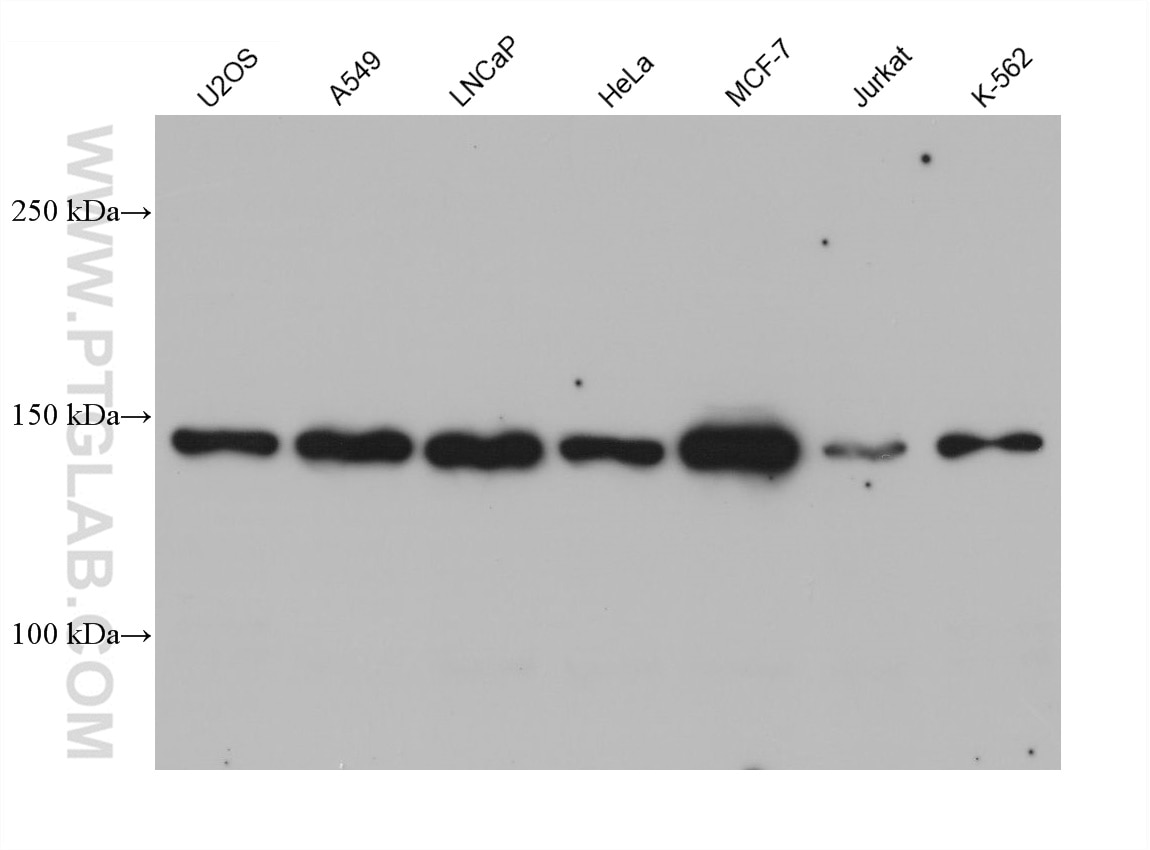Tested Applications
| Positive WB detected in | U2OS cells, A549 cells, LNCaP cells, HeLa cells, MCF-7 cells, Jurkat cells, K-562 cells |
Recommended dilution
| Application | Dilution |
|---|---|
| Western Blot (WB) | WB : 1:2000-1:10000 |
| It is recommended that this reagent should be titrated in each testing system to obtain optimal results. | |
| Sample-dependent, Check data in validation data gallery. | |
Product Information
68708-1-Ig targets SDCCAG1 in WB, ELISA applications and shows reactivity with human samples.
| Tested Reactivity | human |
| Host / Isotype | Mouse / IgG2a |
| Class | Monoclonal |
| Type | Antibody |
| Immunogen | SDCCAG1 fusion protein Ag2467 Predict reactive species |
| Full Name | serologically defined colon cancer antigen 1 |
| Calculated Molecular Weight | 1076 aa, 123 kDa |
| Observed Molecular Weight | 130-140 kDa |
| GenBank Accession Number | BC020794 |
| Gene Symbol | SDCCAG1 |
| Gene ID (NCBI) | 9147 |
| RRID | AB_3670401 |
| Conjugate | Unconjugated |
| Form | Liquid |
| Purification Method | Protein A purification |
| UNIPROT ID | O60524 |
| Storage Buffer | PBS with 0.02% sodium azide and 50% glycerol , pH 7.3 |
| Storage Conditions | Store at -20°C. Stable for one year after shipment. Aliquoting is unnecessary for -20oC storage. 20ul sizes contain 0.1% BSA. |
Background Information
SDCCAG1, also named as NEMF, is a nuclear export mediator. It can be bound to translocon-engaged 60S subunits on native ER membranes. Human SDCCAG1 has been implicated in lung cancers and it may function as a tumor suppressor gene. SDCCAG1 inactivation contributes to the transformed state of human lung cancer cells (PMID:16103875, 10575219). NEMF is also regarded as a potential biomarker for the detection of active and latent TB infections (PMID: 26818387).
Protocols
| Product Specific Protocols | |
|---|---|
| WB protocol for SDCCAG1 antibody 68708-1-Ig | Download protocol |
| Standard Protocols | |
|---|---|
| Click here to view our Standard Protocols |



